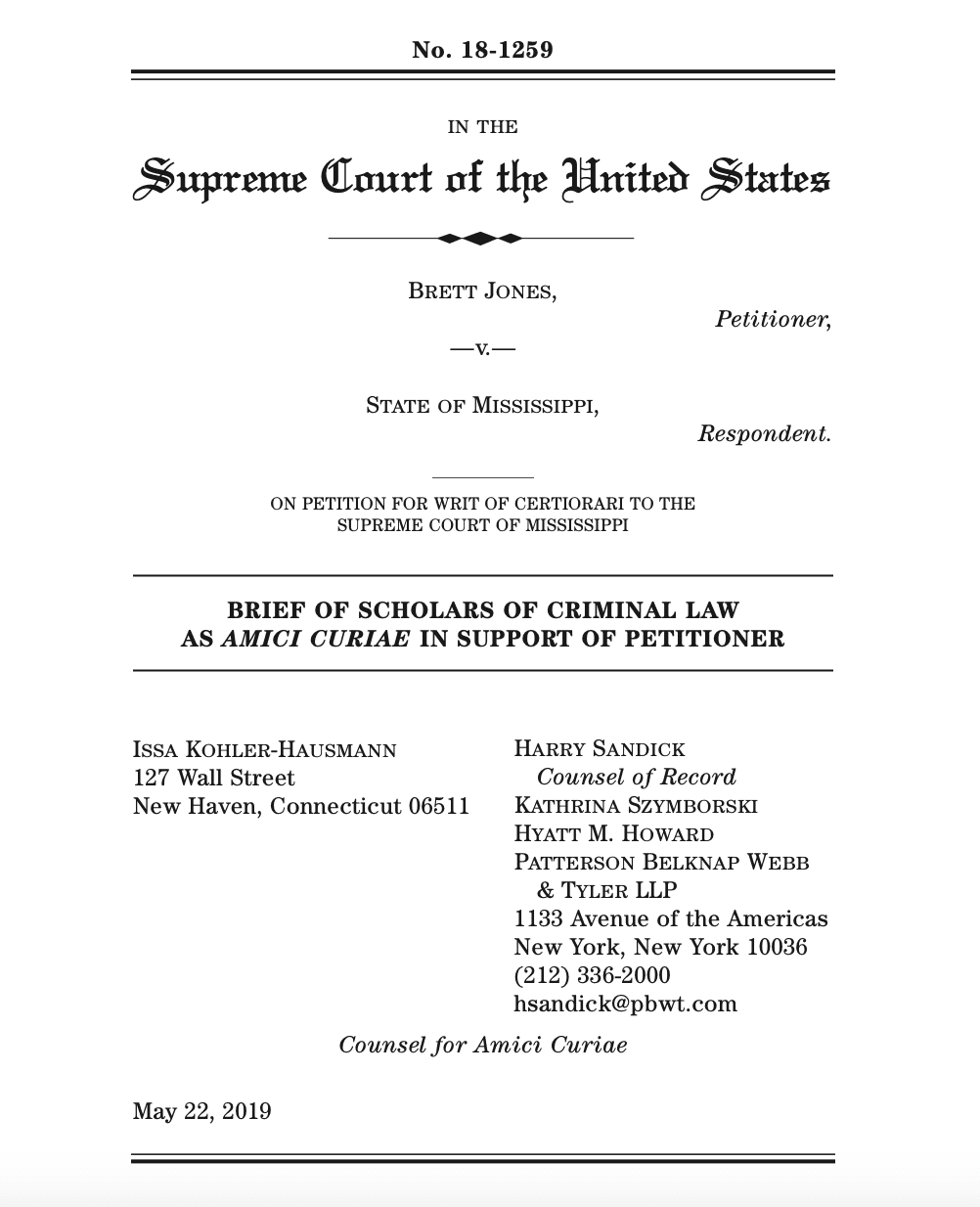
Summary of Argument
This Court has held that the Eighth Amendment's prohibition on "cruel and unusual punishments" limits the types of punishments that may be imposed on children. Specifically, this Court has barred mandatory life without parole "for all but the rarest of juvenile offenders, those whose crimes reflect permanent incorrigibility." Montgomery, 136 S. Ct. at 734 (citing Miller v. Alabama, 567 U.S. 460 (2012)).
As held by this Court in Montgomery, Miller announced a substantive rule of proportionality in punishment under which a specific penalty (a lifetime of imprisonment without the possibility of parole) was deemed unconstitutional for an entire class of defendants because of their status Guveniles who are capable of rehabilitation and reform). Id. Therefore, when a court sentences a juvenile to life without parole without determining that he is not among the "rarest of children, those whose crimes reflect 'irreparable corruption,"' Montgomery, 136 S. Ct. at 726, that court has violated a principle central to the Eighth Amendment: proportionality. Graham v. Florida, 560 U.S. 48, 59. (2010).
Miller, after all, "did more than require a sentencer to consider a juvenile offender's youth before imposing life without parole; it established that the penological justifications for life without parole collapse in light of 'the distinctive attributes of youth."' Montgomery, 136 S.Ct. at 734 (emphasis added). To effectuate the substantive guarantee of proportionate punishment, this Court directed lower courts to evaluate if the child at issue is capable of rehabilitation, or is among the rare "permanently incorrigible" children. Although the Court did not mandate the procedure necessary to ensure that only "permanently incorrigible" children were sentenced to life without parole, it warned that this lack of guidance "should not be construed to demean the substantive character of the federal right at issue." Id. at 735. To the contrary, the Court made clear that to impose a life without parole sentence on children whose crimes reflect transient immaturity would be a "deprivation of a substantive right." Id. at 734.
The rule of law announced in Miller and confirmed in Montgomery is imperiled in the decision below. In sentencing Brett Jones to life without parole, the lower court nowhere declared that he was permanently incorrigible. Nor did it reckon with the ample evidence he presented showing not only that his rehabilitation was possible, but that it had occurred over the decade he had already spent incarcerated, and therefore that he does not belong to a class of people for whom a sentence of life without parole is constitutional. See Miller, 567 U.S. at 4 78. In fact, the lower court did not, as this Court commands, consider "youth [as] more than a chronological fact." Id. at 4 76. In failing to do so, it overlooked how youths (including Jones) have "diminished culpability and greater prospects for reform" and therefore are "less deserving of the most severe punishments." Id. at 4 71 (internal quotation marks and citations omitted). Accordingly, the scheme that produced Jones's penalty is an unconstitutional one, as it allows for the imposition of illegal, disproportionate sentences.
Without reqmrmg a finding of permanent incorrigibility for sentencing a child to spend his entire life and die in prison, Montgomery's determination that Miller's rule is substantive is rendered meaningless. Amici respectfully urge the Court to grant certiorari to clarify that the sentencer must find a juvenile permanently incorrigible before condemning him to life in prison, and moreover that evidence of actual rehabilitation militates against a finding that a particular juvenile offender is among the "rarest of children, those whose crimes reflect 'irreparable corruption."' Id. at 726. This Court's consideration of this case is necessary to ensure implementation of its substantive rules and uphold the rule of law.